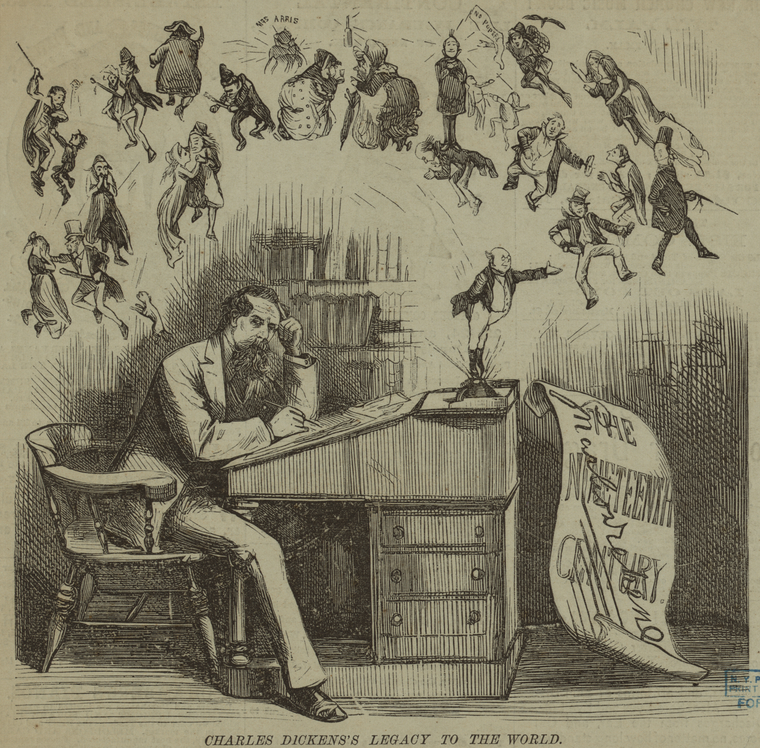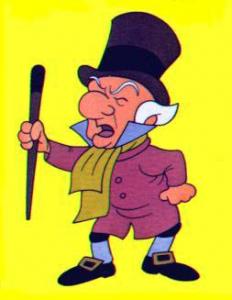Biblio File
Mixed Feelings About Charles Dickens

So what prompted me, you might ask, to choose Dickens as a subject?
There is bibliographic interest. Dickens is probably the most recognized author in English after Shakespeare, and the collections of the New York Public Library reflect that eminence, from the original monthly parts of the serial publication of David Copperfield; to international editions such as Sochinen¯iia Charlza Dikkensa, the collected works in Russian; to a run of All the Year Round [1859-1895], the weekly periodical edited by Dickens. Currently, a catalog search for Dickens as author brings up 1631 entries. Many of these items, including a lot of Dickensiana such as one of his own writing tables, are held in the Henry W. and Albert A. Berg Collection of English and American Literature.
And then, the more I learn about Dickens himself, the more fascinating a figure he becomes: his work is as engaged by the times he lived in as, in a sense, the times were defined by his work. As a writer, he depicts contemporary life exhaustively, confronting most of the major social and moral issues of the nineteenth century. Even now, when we think of Victorian London, with fog, gaslight, and winding alleyways, it is an image that is derived largely from Dickens’s fiction (or, in our media-glutted world, from movies and BBC adaptations). In addition, my interest is stirred by all those engrossing elements of Dickens’s biography: the family’s imprisonment for bad debt; the never-forgotten boyhood experience of the blacking factory; the inexhaustible energy which produced the huge list of novels, autobiography, travel books, plays; the estrangement from his wife after the birth of their ten children, while maintaining relations with his mistress, the actress Ellen Ternan; and the celebrated public readings which hastened his early stroke.

As I’m preparing this public talk over the next few months, I’ll let you know how and if my feelings about Dickens evolve.
(Mr. Magoo's Christmas Carol image source)
Read E-Books with SimplyE
 With your library card, it's easier than ever to choose from more than 300,000 e-books on SimplyE, The New York Public Library's free e-reader app. Gain access to digital resources for all ages, including e-books, audiobooks, databases, and more.
With your library card, it's easier than ever to choose from more than 300,000 e-books on SimplyE, The New York Public Library's free e-reader app. Gain access to digital resources for all ages, including e-books, audiobooks, databases, and more.
If you don’t have an NYPL library card, New York State residents can apply for a digital card online or through SimplyE (available on the App Store or Google Play).
Need more help? Read our guide to using SimplyE.
Comments
Dickens and Annie Fields
Submitted by zhiv (not verified) on August 20, 2008 - 4:20pm